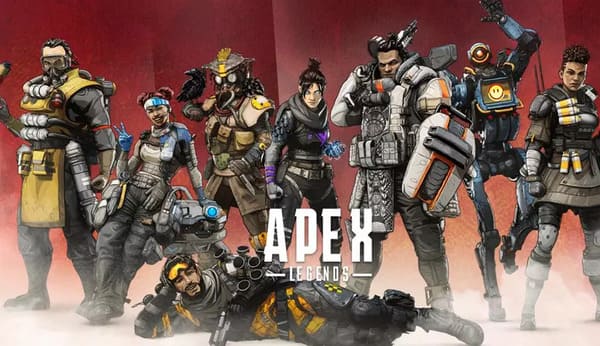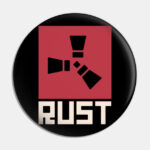Since its early access release in 2013, Rust has become one of the most enduring and popular survival games of all time. Developed by Facepunch Studios, Rust throws players into a brutal, unforgiving world where the only way to survive is through crafting, building, and sometimes, brutal combat.
At its core, Rust is about survival. Players are left on a desolate island with little more than a rock and a torch, and it’s up to them to gather resources, build shelter, and defend themselves from both hostile creatures and other players. Whether you're making your way across the island to gather materials, attempting to form alliances, or engaging in ruthless raids, Rust is a game that keeps players on their toes. Its combination of challenging mechanics, unpredictable player interactions, and ever-changing environments has made it a thrilling and unpredictable experience that attracts a large and dedicated fanbase.
In this article, we will explore the different aspects that make Rust a must-play survival game, including its gameplay mechanics, the community experience, the progression system, and how the game has evolved over time.
1. The Brutal World of Rust: A Fight for Survival
When you first drop into Rust, you’re given little guidance. You spawn on a large island filled with forests, beaches, caves, and hostile wildlife. The environment is hostile, and the only resources you have are what you can gather with your bare hands or basic tools. The sun beats down on you during the day, and the cold night air is a constant threat. Whether you're fighting off wolves, hunting for food, or avoiding radiation zones, survival is your primary objective.
The Essentials of Survival: Gathering, Crafting, and Building
The main mechanics of Rust revolve around resource gathering and crafting. You must mine for materials, such as wood, stone, and metal, which can then be used to create tools, weapons, and structures. These items are essential for surviving the brutal conditions of the game, and crafting is central to the experience.
-
Gathering Resources: You'll start with nothing more than a rock and a torch, but soon enough, you'll be harvesting wood, metal, sulfur, and stone. These materials are used to create tools and weapons that help you survive and protect yourself. Every tree you chop down, rock you mine, and animal you hunt will provide materials necessary for crafting.
-
Crafting and Building: As you progress, you'll be able to craft increasingly advanced items. Basic items like a hatchet or a campfire are the building blocks, but eventually, you'll be able to craft guns, armor, and even large bases. The crafting system is deep, with hundreds of items and tools to discover. The ability to build your own shelter is also essential — whether it's a simple shack or a fortified base, your home in Rust is your sanctuary.
-
Farming and Food: You’ll also need to manage your hunger, thirst, and health. For food, you can hunt animals, grow crops, or even scavenge from nearby towns or NPC camps. Additionally, finding and maintaining a water source is crucial for surviving long-term. Farming can become a significant part of the gameplay loop, especially when you start growing plants for food or crafting components.
Environmental Threats: Not Just Other Players
While Rust is notorious for its brutal player interactions, the world itself is also filled with dangers. Wild animals like wolves, bears, and boars roam the island, often attacking players on sight. Furthermore, there are environmental threats such as radiation zones that players must avoid unless they’re equipped with the right gear. The weather also plays a role, with storms and freezing temperatures making survival even more difficult.
-
Wildlife: Aggressive animals will attack on sight if you wander too close to their territory. Hunting them for resources is necessary, but be warned: getting too close without the right tools or weapons can quickly turn deadly.
-
Radiation Zones: Some areas of the map are contaminated with radiation, which can damage your health and make them inaccessible without special gear like radiation suits or medicine.
2. The PvP Experience: Trust No One
Perhaps the most defining feature of Rust is its player-versus-player (PvP) mechanics. Rust is a game where your greatest threat often isn’t the environment — it’s other players. The game is designed around player interaction, and while there are different ways to approach this interaction, it’s always risky.
The Danger of Other Players
While you may initially want to cooperate and form alliances, the reality of Rust is that trust is a rare commodity. There is a constant tension in the air, as players can, and often will, betray you in pursuit of their own survival. Whether it’s raiding your base while you're offline or killing you for the loot on your body, PvP interactions can often feel brutal and unpredictable.
-
Raiding: One of the most exciting aspects of Rust is the ability to raid other players' bases. This can be done by using explosives or tools to break into locked doors, steal resources, and defeat enemies. If you want to thrive in Rust, you’ll eventually need to build a strong, impenetrable base that can withstand raiders.
-
Teamwork and Alliances: While betrayal is always possible, there is still the opportunity for cooperation. Players can form temporary alliances to fight off common enemies or share resources. However, these alliances are never guaranteed to last, as the threat of betrayal is ever-present.
Looting and Progression
Looting is a huge part of the game, and it plays a large role in Rust's progression. As you gather resources, you can trade, loot, or steal from other players. The challenge lies in how far you’re willing to push your luck — are you willing to risk exploring a high-risk, high-reward area to find rare loot, or will you stay safe and gather only the essentials?
-
Loot Crates: Special loot crates scattered throughout the world offer high-quality items, but they are often guarded by other players or dangerous AI. These crates can be pivotal in giving you an edge over your enemies.
-
Weaponry and Armor: Throughout your journey in Rust, you'll craft weapons like bows, crossbows, pistols, and even high-tech guns. Armor also plays a significant role, as it helps protect you from damage in combat and from environmental threats like radiation or cold.
3. The Base Building: A Home for Your Gear and Loot
Building a safe, fortified base is an essential part of Rust's gameplay. Without a strong base, your loot is vulnerable to thieves and raiders. The game's building mechanics allow players to construct a wide range of structures, from basic wooden huts to elaborate stone fortresses.
Base Design and Fortification
Base-building is a delicate balancing act. You need to build something secure enough to withstand attacks, but you also have to be resourceful and efficient with your materials. The complexity of base designs ranges from simple wooden shacks to multi-tiered stone fortresses equipped with traps, turrets, and hidden loot rooms.
-
Upgrade Materials: Bases in Rust can be upgraded over time. What starts as a flimsy wooden hut can eventually be reinforced with stone or metal, making it much more difficult to raid. However, this takes time and effort, and it can still be breached by experienced players with the right tools.
-
Doors, Locks, and Traps: You can secure your base with locked doors, trapdoors, and even automated turrets that will shoot at anyone trying to break in. Additionally, players can set up traps around their base to catch enemies unawares.
Raids and Countermeasures
Raiding is one of the most intense and satisfying activities in Rust. Successfully raiding another player’s base requires careful planning, and it can often take hours or even days to gather the materials to break in. However, the rewards are great — valuable loot, resources, and a sense of accomplishment.
-
Defending Your Base: Defending your base from raiders is a constant challenge. You must stay vigilant, upgrade your defenses, and potentially recruit other players to help guard your home. Online raids are one of the most thrilling aspects of Rust's PvP experience.
4. The Evolving World of Rust: Regular Updates and Community Involvement
One of the reasons Rust has remained relevant for so long is its commitment to regular updates and improvements. Facepunch Studios has been consistently adding new features, balancing existing mechanics, and keeping the community engaged with frequent patches and events.
New Content and Features
The developers behind Rust have continually expanded the game, introducing new weapons, vehicles, crafting options, and even environmental changes. Special seasonal events and changes to the world keep the game feeling fresh and exciting.
-
Seasonal Events: Special events, such as Halloween or Christmas, offer themed items and challenges that keep players coming back. These events often feature limited-time loot and exclusive content, giving players new goals to chase.
-
Community-Driven Updates: The Rust community plays a big role in shaping the game. The developers often listen to community feedback and incorporate popular suggestions into the game. This collaborative relationship has fostered a loyal player base and helped the game stay relevant for years.
5. Conclusion: Rust – A Brutal but Rewarding Survival Experience
Rust is a harsh, unforgiving game, but it’s precisely this difficulty that makes it so rewarding. Every resource you gather, every item you craft, and every battle you win feels earned, and the constant tension of PvP combat and base building keeps the stakes high. Whether you’re playing solo or with friends, Rust offers a unique survival experience that is unlike anything else.
The thrill of creating your own base, defending it from raiders, and forging alliances or betraying others creates a dynamic and endlessly replayable experience. With regular updates and a dedicated community, Rust continues to thrive as one of the best survival games out there.





























